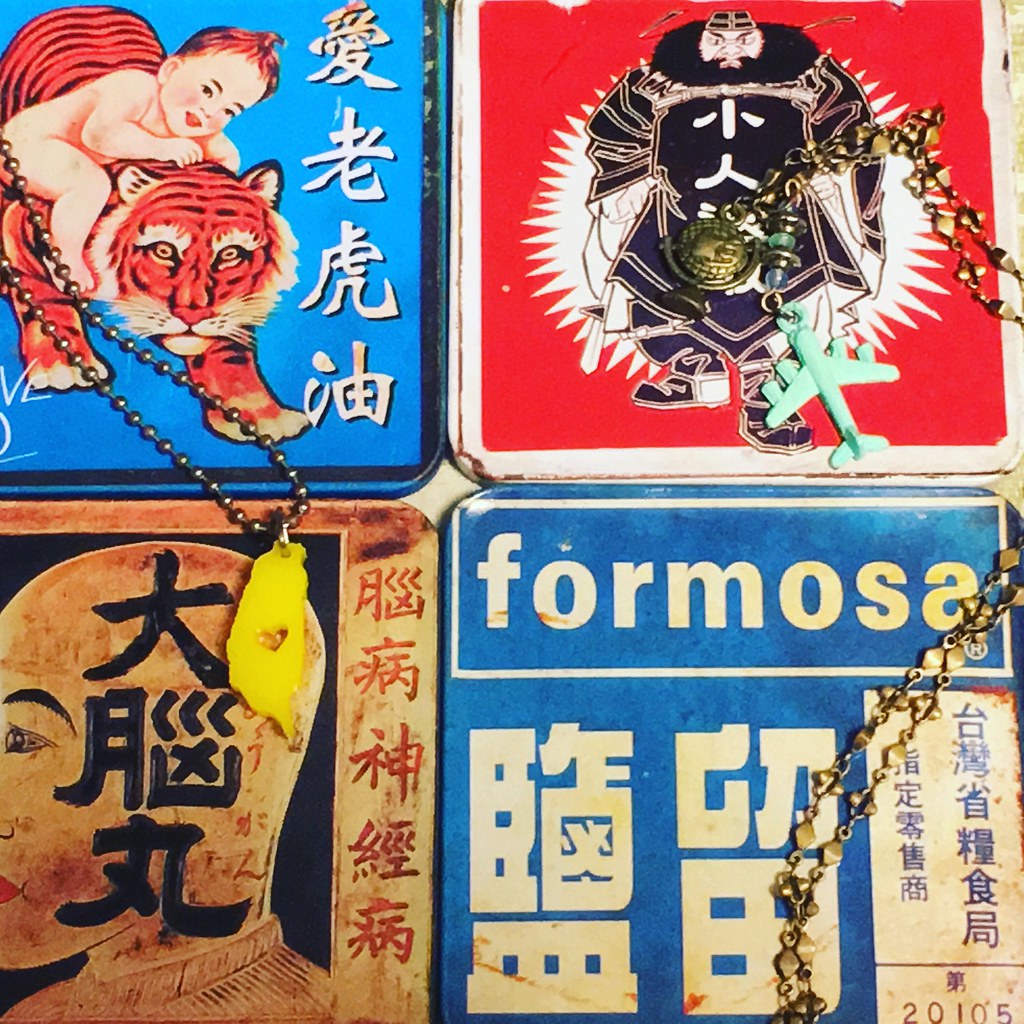
"I wonder how many other international issues the media does this with, but we're only noticing this time because it's Taiwan and we know enough about it that we know they're wrong," Brendan quipped back when the Tsai-Trump phone call was actually news.
At that time, I wrote a lot about
liberal hypocrisy (claiming to be on the side of human rights, freedom and democracy abroad and yet leaving liberal, democratic Taiwan out in the cold in favor of totalitarian, human-rights-abusing China), the "this is so dangerous China's gonna flip oh no oh no you can't do that!" narrative that the media had decided to run with - or as Michael Turton summarizes it when it pops up on all things Taiwan, "
ZOMG TENSIONS!" - and that same media
pruning the voices of Taiwanese who were not quite so afraid of said phone call to fit their narrative that it was a dangerous and unacceptable move. I know the overwhelming media narrative was wrong, because I live here and follow these things closely, and yet I watched quite a few people I trust, or at least other liberals like me, fall for it because they aren't as well-acquainted.
Even now I come across comments and
tweets about how talking to Taiwan was one of Trump's "dangerous" moves that makes him unfit for the presidency. Or more veiled comments about how he's using Twitter to destabilize international diplomacy (hint: yes they are talking about Taiwan). He is unfit, but not for those reasons, yet it still keeps popping up.
I remember distinctly thinking that I finally understood what conservative voices were talking about when they called liberals elitist know-it-alls, accusing them of being snotty and condescending. As a liberal myself I had not experienced that, generally agreeing with other liberal voices. When I disagreed on this issue based on, well, my knowledge of it - which may be imperfect but certainly runs deeper than most journalists and so-called 'experts' not actually based in Taiwan or who are in fact more oriented towards China - I saw the sharp end of that condescension and snottiness in various discussions I engaged in on the issue. "Well, what you have to understand is..." has got to be my most hated phrase of 2016, but not as used by conservatives (I always hated that) but rather by those with whom I ordinarily would agree.
All that arrogance, all that "we are the experts" condescension on an issue they don't understand. Not one iota of owning up to the hypocrisy of the whole thing.
It is also fairly well understood among circles of people who know Taiwan (as opposed not only to those who don't, but also those who only think they do)
that the liberal narrative on Taiwan is straight-up wrong. The assumption that closer ties with China are generally a good thing for everyone, including Taiwan, and talk of independence is therefore bad? Wrong. The refusal to re-examine beliefs formed years ago about how the Taiwanese identify? Wrong. The assumption that whatever is in the Republic of China constitution accurately represents the will of the Taiwanese people? Conflating the will of the Taiwanese people with whatever KMT or CCP talking points the media digs up? The historical untruth, widely reported in even "reliable" media outlets that "China and Taiwan "split in 1949" - thereby erasing a good half-century of Taiwanese history - with some clause as to what China believes without any note as to what Taiwan believes? The assumption that if we don't placate China it could mean war, but if we push Taiwan into China's arms that that won't mean war (oh, but it will)? Aggressively ignoring Taiwan's economic and geopolitical importance - a vibrant democracy with a population rivaling that of Australia which is one of the US's top trading partners in favor of a narrative that casts Taiwan as a small, worthless rock? Filing reports on Taiwan from Beijing and calling them accurate? Wrong, wrong, wrong, fuck you, wrong.
But that one comment has stuck with me. Through it all, I have still generally trusted the established media. Yes, I am a liberal and they often lean liberal, and yes, I have stopped to ponder whether the fact that I tend to agree with them is what causes me to trust them (to some extent, this is probably the case). However, I also do truly believe that in most cases liberalism simply reflects reality: the facts have a liberal bias.
Even in this case, liberalism reflects reality:
supporting Taiwan is a true liberal ideal. Something is not liberal or illiberal because of who believes it, it's that way because of its fundamental makeup. Supporting Taiwan means supporting self-determination, nation-building based on common ideals rather than ethnic makeup, supporting freedom, democracy and human rights. Taiwan is also a nation of strong (perhaps too strong in some cases thanks to the construction-industrial state) public infrastructure such as telecom, national healthcare and affordable public education. Their social activists are unapologetic liberals in a truly modern sense. These are liberal ideals.
It's like a world of funhouse mirrors where conservatives support the liberal thing as liberals eschew it. The facts here do have a liberal bias, but the liberal mainstream happens to be illiberal in this case.
So what is sticking with me is this question: how many other cases are there that I am simply not aware of because I don't know as much about the issue?
Just before all of this happened I was openly pondering which newspaper or media source to subscribe to, thereby supporting them through troubled times ahead when we would need reliable media to separate the wheat from the fluffy, combed-over chaff and report accurately in a time of post-truth "news" (or "newsiness").
My candidates included the New York Times, The Guardian and the Washington Post.
So far, I have contributed to none.
After the tragedy they called "reporting" on the phone call, and their continued insistence on being completely wrong on Taiwan - including the headline hullabaloo in WaPo recently, and the fact that to be heard at all, important voices in Taiwan have to reach out because, unlike with so-called "experts" from China, nobody is calling them - I can't find one that I trust enough to give them my money.
Because really. How many other issues are there? If I can so readily side with conservatives on the one international issue I can be said to know quite a bit about, what other turds might I be swallowing without even knowing it? Are there other issues that, like my liberal friends who do not know Taiwan, I come off sounding like a mindless parrot because I was so silly as to trust the narrative sold to me by the New York Times?
It's funny, too, that of all issues that might inflame an American - as much as I can be said to be one anymore in anything but name - Taiwan is the one that caused the scales to drop from my eyes.

Don't worry, I won't be embracing conservative news anytime soon. Just on a grand fact-checking scale, I trust them even less despite their getting one issue right. I am no less liberal than I was, I'm just following my liberal beliefs to their logical conclusion by supporting Taiwan, rather than entering the wonky-mirrored funhouse.
That leaves me with a big fat problem though: in a world of "fake news" (I still hate that term but again, it'll have to do), "post-truth" beliefs, bad reporting, and massive inaccuracy resulting from half-baked stories designed to get readers agreeing - or just clicking - if I can't trust the media bastions otherwise best-known for the closest thing to accuracy there is, who the hell can I trust?
What is left, if I can no longer be sure I am getting accuracy and good reporting on international issues from the only media outlets that have any right to claim accuracy and good reporting on those issues? What is even news? What is even truth? What is even accuracy? Nobody has the time to delve more deeply into every issue, to live in every country, to study every region.
Other than a basic ability to think critically about what I read, when every single source, even the seemingly trustworthy ones, come up short, what is left when my faith in even the "good" media is dead




